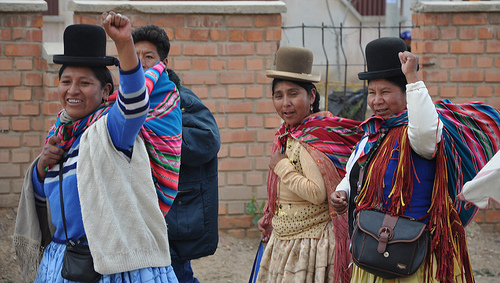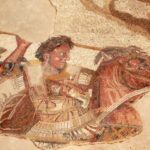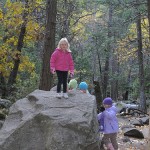The world is a book and those who do not travel read only one page. – Saint Augustine

If you traveled to Bolivia, you could find out about their customs, including their brightly colored blankets and their hats. Or you could read about it in a book or on the net.
What does that mean?
This is an interesting way of making an analogy. One page of a book will only give you so much information. You will never know about what happens in the next chapter, much less at the end of the book. That is the fate of those who stay in one place, and never visit other places.
The flip side of that is the person who travels afar, and reads from the pages of each place that they visit. In this manner, they end up reading the whole book, page by page. And like a good mystery, reading a later chapter may just explain something read in an earlier chapter.
Note that if you just visit nearby communities with the exact same culture, you’re going to read the same page again that you have previously been reading. It is my belief that the quote is urging us to learn more about each-other, that we may better understand the whole of the book which is the world.
Why is learning about others important?
Beyond attempting to satisfy my nearly insatiable curiosity, there is a lot to learn from other cultures and viewpoints. Whether you believe their viewpoints or not, it may help you understand why others do what they do and the reasons they believe it is proper and correct to do them.
That can help bring greater understanding, and hopefully avoid some of the misunderstandings that have plagued mankind throughout history. If you are not familiar with the customs of others, how easily might you offer an unintended insult? There are cultures where certain things are done with particular hands, and offering someone your hand could be considered an insult.
Knowing more about others also allows you to consider their views and beliefs in the historical context of their corner of the world. Those who come from the frozen lands might have different views than those who grew up in the sun-scorched lands, right? But you won’t know if you don’t read from their page of the book.
Where can I apply this in my life?
Well, the point of the travel is to broaden your mind, so any activity which does that would be a good place to start. You may not know it, but in the USA (and perhaps other places as well) there is a channel called “The Travel Channel” and it specializes in showing interesting places to see or visit.
I have seen interesting shows on all parts of the world, as well as the history of a people, and some of their best tourist destinations. If you get the channel, it’s a very low cost way of traveling and learning about others, their history, and a little about how they think.
There are plenty of other shows scattered across the TV dial which provide information on foreign destinations. There are plenty of resources on the TV, if you can find them, and find the time to watch them. Of course, the availability may vary from country to country.
The next stop might be the local library or book store. There you will find books from travelers past, historical references, as well as publications from other countries extolling their history, culture, and tourist sites. That is a lot to read, if you can make the time.
Another possibility is the internet. There are plenty of photo-based blogs or journals from trips around the world, with descriptions of the fun that was had, and the interesting people who they met. You might even get a little bit of culture or history in some of them, depending on what their personal interests were.
You might also be able to find and talk with local people who are from far away places. Most large towns in the US have associations dedicated to people from different countries. I am familiar with Sons of Norway, as that is where my Grandfather (morfar) was from. I imagine you could find individuals or groups from many parts of the world, if your town is large enough, or you ask enough people.
One last option that you could check out, before traveling yourself, is to look for places in your area where tourists come to visit. Talk to them, and as you answer their questions about you and your culture, you can ask them the same about yours. Language, as always, may cause difficulties, but I believe it is worth the effort, even if the communication is a bit broken.
Finally, you could actually travel to distant places. That’s kind of pricey, but if you can afford it, you can go where you want, and find out what you desire about a country, a culture, or a people. Just be sure to take pictures and notes, so you can write your own travel journal or eve book, and help the next person who has questions.
And that is how the world becomes a safer and saner place. One person at a time, taking the time to understand their neighbors.
From: Twitter, @iheartquotes
confirmed at : http://www.brainyquote.com/quotes/quotes/s/saintaugus108132.html
Photo by folkehjelp (Norwegian People’s Aid – and it is nothing more than fortuitous circumstance that brings us this picture from a Norwegian organization – sometimes it just works out that way!)






